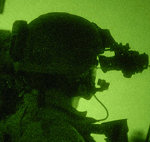 I thought I was seeing things. First, I read a notice on the website of the Directorate of Defense Trade Controls (“DDTC”) saying that DDTC was putting a temporary hold on export licenses where BAE Systems was an applicant or manufacturer while the agency studied BAE’s recent guilty plea to charges that it paid bribes in violation of the Foreign Corrupt Practices Act and violated the Arms Export Controls Act by failing to report these bribes as “commissions” in export license applications.” Then the notice was gone.
I thought I was seeing things. First, I read a notice on the website of the Directorate of Defense Trade Controls (“DDTC”) saying that DDTC was putting a temporary hold on export licenses where BAE Systems was an applicant or manufacturer while the agency studied BAE’s recent guilty plea to charges that it paid bribes in violation of the Foreign Corrupt Practices Act and violated the Arms Export Controls Act by failing to report these bribes as “commissions” in export license applications.” Then the notice was gone.
According to this article in Defense News Daily, I wasn’t hallucinating:
In an Internet notice posted after BAE pleaded guilty on March 1, the State Department said the hold applied to license applications where BAE Systems PLC “or any of its subsidiaries is an applicant, consignee, end user, manufacturer or source.”
In the notice, the department advised export license applicants to determine whether they could modify their applications to remove BAE products. If they could, the notice instructed license applicants to withdraw their applications and amend them. That notice was withdrawn within a day and replaced by one that did not offer advice to license applicants hoping to export BAE products.
And that notice, in turn, was withdrawn and not replaced.
Notwithstanding the confusing impressions left by these disappearing web notices, a State Department spokesman, according to the article, asserted that DDTC was considering whether to debar BAE from exports. Meanwhile a BAE spokesman said that the company interpreted the removal of the web notices to indicate that no hold was currently in place.
Whatever is going on here, DDTC’s continually shifting public position doesn’t permit much confidence in its decision-making process on this issue.

 Posted by
Posted by  Category:
Category: 

 On Monday the Directorate of Defense Trade Controls (“DDTC) published a
On Monday the Directorate of Defense Trade Controls (“DDTC) published a  The Directorate of Defense Trade Controls (“DDTC”) has posted the
The Directorate of Defense Trade Controls (“DDTC”) has posted the  The biggest news today was the
The biggest news today was the

